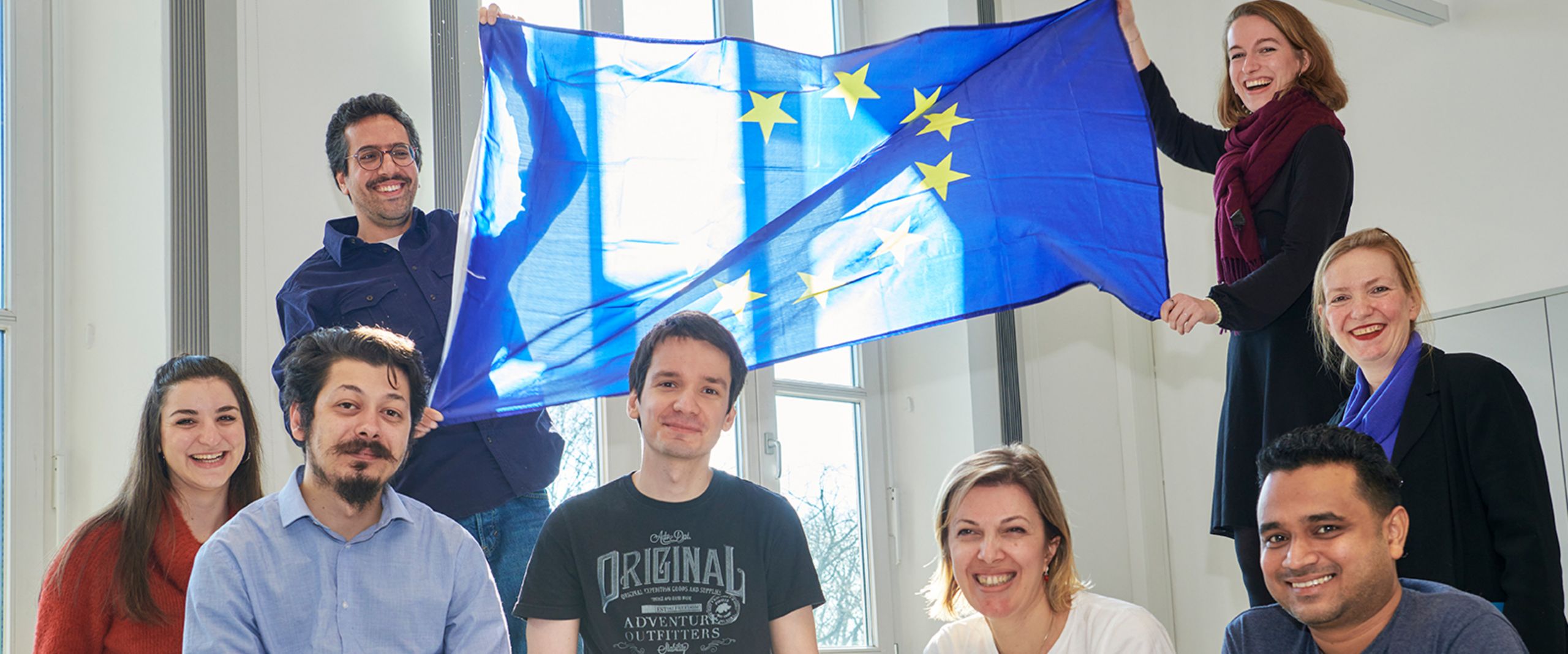
School of International Business
Study economics, law and politics in Europe for your leadership career
| Degree | Master of Arts (M.A.) or Master of Laws (LL.M.) with a legal specialisation |
|---|---|
| Start of study | Summer semester (90 credits), Winter semester (60 credits / 120 credits) |
| Application period Summer semester | 15 December until 15 January |
| Application period Winter semester | 01 June until 15 July |
| Standard period of study | 2 semesters/3 semesters/4 semesters |
| Accredited | Yes |
| Admission restricted | Yes |
| Admission requirements |
|
| Language of instruction | English |
| Faculty/institution | School of International Business |
| Integrated stay abroad | No |
| Seminar size | 20 students |
The Master's in European Studies is a practice-oriented postgraduate course. You will take courses in private and public management, law, economics and politics - always with the European Union in mind. After the first introductory weeks of study, you will get to know “Brussels”, more precisely the EU institutions and the public and private sector organizations that interact with them, at our intensive seminar in Brussels, which we run together with partner institutions from Riga and Western Switzerland.
In order to fully prepare you for your career - be it a career in the EU institutions, in the diplomatic service or in the government and administration of member states or EU partner states or in business - you also have the opportunity to participate in a career development program or to take courses in intercultural management, group processes or personal skills development. Career opportunities for graduates of the European Studies Master's program range from leadership positions in the private and public sectors to lobbying activities and political office.
European Studies will offer many job opportunities in the EU in the coming years. The average age of EU officials in EU institutions is around 59. So: The EU needs you, the young generation of EU citizens! We will prepare you.
You will acquire intercultural competence, which is increasingly in demand in companies and organizations. This applies to EU institutions as well as to public administration, the foreign service and non-governmental organizations (NGOs). The Master's is also the ideal preparation for management or consulting activities or an academic career.
International graduates can use the job-seeking visa to prepare for the next step in their career.
The programme is offered in three variants:
Admission requirement: 240 ECTS credits
ECTS credits in the Master's programme: 60 ECTS credits
Standard period of study: 2 semesters
Start of programme: Winter semester
Curriculum: 2nd and 3rd semester modules
Admission requirement: 210 ECTS credits
ECTS credits in the Master's programme: 90 ECTS credits
Standard period of study: 3 semesters
Start of programme: Summer semester
Curriculum: Modules from the 1st to 3rd semester
Admission requirement: 180 ECTS credits
ECTS credits in the Master's programme: 120 ECTS credits
Standard period of study: 4 semesters
Start of programme: Summer semester
Curriculum: Modules from the 1st to 4th semester
Lectures I: 13.10.2025-21.12.2025
Christmas Break: 22.12.2025-02.01.2026
Lectures II: 05.01.2026-30.01.2026
Exam session: 31.01.2026-14.02.2026
Check the application deadlines and admission requirements for your desired degree programme.
Questions about the degree programme can be answered by the contact persons on the degree programme pages. If you have any further questions about your decision to study at HSB, our advisory and service institutions will be happy to help.
As part of the Social Europe Days 2025, Faculty 1 – School of International Business at Hochschule Bremen, City University of Applied Sciences (HSB), under the direction of Prof. Dr. Christiane Trüe, welcomed students and lecturers from the partner universities PXL Hasselt (Belgium), Universidad de Málaga (Spain), University of Malta, Tallinn University (Estonia), Munich University of Applied Sciences, Hanzehogeschool Groningen (Netherlands), Universitatea "Lucian Blaga" din Sibiu (Romania) to an intensive exchange and project format. The one-week face-to-face programme took place as part of a Blended Intensive Programme (BIP) and was supplemented by preparatory online work phases.
In interdisciplinary and international project groups, the students from Bremen, together with fellow students from the partner universities, examined one of the SDGs in more detail, developed a project idea as an example of good practice, suitable for implemenation at the participating universities or in their environment, and explored the significance of the SDGs for themselves personally and in a European context.
The attendance week at HSB not only offered the participants space for intensive teamwork, but was also rounded off by a varied supporting programme with excursions and inspiring keynotes. Experts from science, politics and civil society provided valuable insights into European topics of the future and encouraged dialogue.
"The programme was a complete success - both in terms of the depth of content and the international cooperation," said the participants.
The Social Europe Days 2025 impressively demonstrate how European university cooperation can succeed in practice - digitally, across borders and with a focus on the future.